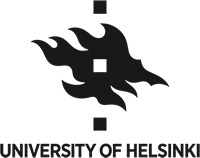About the Project
Infections pose a global threat because of spread of antibiotic resistance, hospital infections and problems in the third world. On the other hand, rapidly increasing information of microbial genomes now provides new opportunities to tackle virulence mechanisms of pathogenic microbes. We have delineated earlier new immune evasion mechanisms of important pathogens, like borrelia, yersinia and streptococci. The aim of this project is to search and analyze molecules that bacteria and the malaria parasite Plasmodium falciparum use to escape the complement system. We are focusing on complement factor H (FH), FH-related proteins and the pentraxins, especially PTX-3. The information obtained will be important in developing new ways to overcome microbial resistance to complement. The particular microbes we will be working on include pneumococcus, salmonella and antibiotic-resistant gram-negative enterobacteria. The first mechanism involves hijacking host complement regulatory proteins, factor H that under natural circumstances down-regulates the amplification pathway of complement activation. We will study direct inhibitory effects of factor H and the potentially interfering or promoting effects that the FHR-proteins or pentraxins could have. The evasion molecules will be identified and further characterized. In the second mechanism, we will study hijacking the central complement component C3 and its activation product, the opsonin C3b in a nonactive form from the host blood or proteolytic cleavage of C3/C3b by the microbial enzymes. The use of the microbial proteins that mediate human complement evasion as vaccines would lead to an immune response that could block complement resistance and promote microbial clearance.
General description of your individual PhD-schedule:
• Your main university will be University of Helsinki (Finland) with Prof. Meri as supervisor.
• You will have a 6-months research secondment at Humanitas University Milano (Italy) with Prof. Garlanda as supervisor, where you continue to scientifically work on your thesis project.
• You will have a further 6-months research secondment at MSD Finland (Helsinki) where you will learn industrial approaches to vaccine research.
• You will have a 1-month clinical training at Tirol Kliniken Innsbruck (Austria).
• You will have a 1-month entrepreneur training at MSD Finland (Helsinki).
• You will finally receive a PhD issued by University of Helsinki and Humanitas University Milano if you fulfil the respective requirements.
Application
Please visit www.corvos.eu for application and more information on the PhD program. You have to submit: Application Form (see www.corvos.eu), CV, Master/MD/Diploma document, Abstract of Master/MD/Diploma thesis. Selected candidates will be invited for a personal interview to Innsbruck on 03rd/04thJan or 09thJan2020.
Requirements:
We are looking for highly qualified and motivated aspiring PhD students from any nationality with an open-minded and very enterprising personality, capable of working in collaborative and integrated research groups. Ideal candidates should possess a good scientific drive and a strong motivation to succeed.
•You have a full study completing degree (Master, Magister, Diploma, MD) in medicine, natural sciences or related disciplines until March 2020
•You are an Early Stage Researcher (ESR) – you either just finished your studies, or you have worked less than 4 years as an employee in the biomedical sector after obtaining your degree
•You have to show academic excellence, scientific potential, flexibility, motivation and suitability for the research project
•You have the willingness to stay abroad for 3 years from your current residence and willingness to travel through Europe
•You comply with the mobility rule for Marie Sklodowska Curie ITN fellows – Researchers must not have resided or carried out their main activity (work, studies, etc.) in the country of the recruiting university for more than 12 months in the 3 years immediately before the recruitment date. This will be thouroughly checked.
Funding Notes
The Marie Sklodowska-Curie project CORVOS, for COmplement Regulation and Variations in Opportunistic infectionS, is funded as an Innovative Training Network (ITN) – European Joint Doctorate (EJD). Its focus lies on education of young scientists in the field of complement in opportunistic infections. This interdisciplinary doctoral program is supported by 10 European universities, 2 research institutes, 3 biomedical companies and 3 hospitals. The PhD students will have enhanced career perspectives in the academic and non-academic sectors through international, interdisciplinary and inter-sectoral mobility combined with an innovation-oriented mind-set. Visit www.corvos.eu to see all the benefits that you will have as CORVOS PhDstudent.

 Continue with Facebook
Continue with Facebook

